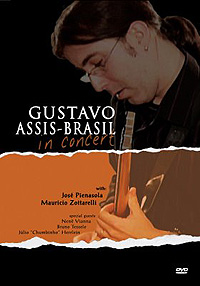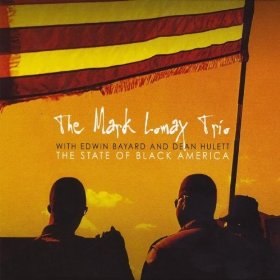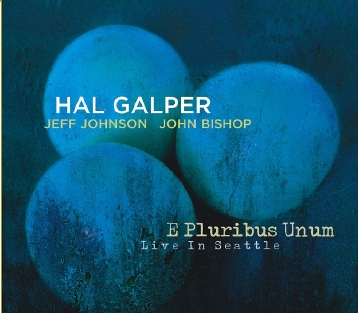In which the beleaguered reviewer attempts to make some headway into the mounds of CDs seeking reviews accumulating daily by providing quick hits on a few recordings at a time.
 Amina Figarova - "Sketches"
Amina Figarova - "Sketches"
(Munich Records)
Azerbijan-born pianist and composer Anima Figarova continues her ascent as one finest composers in the jazz world today on Sketches. As Figarova explained when she was last in Chicago (see our review here) the 13 compositions on this album were inspired by some of the locales she and her sextet traveled to while on tour., as well as the experiences and feelings they encountered. Figarova is an exceptional composer - who utilizes colors somewhat like Mara Schneider, but for a smaller band. "Four Steps to..."" shows her ability to write intricate arrangements for her horn section - Ernie Hammes on trumpet and flugelhorn, Marc Mommaas on tenor sax and husband Bart Platteau on flutes. Her way with energetic and unusual rhythms is apparent on the too-short "Unacceptable" - which gives drummer Chris "Buckshot" Strik a chance to shine, and the start/stop "WHOTSOT." Bassist Jeroen Vierdag is an integral member - and he keeps the band focused on the title track, while Figarova and Mommaas add potent solos. Along with the great playing, it is Figarova's compositions that take center stage. "Caribou Crossing" slows the pace and gives Platteau's beautiful flute center stage, while "Breakfast for the Elephant" is a feature for Hammes. Figarova's compositions are so strong that other artists would be thrilled to be able to achieve any of what she does across these mature and self-assured numbers. There is no let up among the quality of the remaining numbers: "Back in New Orleans" is a blues filled with both love of the city and despair for the tragedies they have had to endure, while "Flight No"'s frenetic energy gives the impression of running from gate to gate across an airport. "Look at That" mixes several different rhythmic styles, including a hint of tango, while "Train to Rotterdam" chugs along. "Happy Hour" gives an idea that even through their constantly being "On the Road" and staying in hotel rooms can be a bit of a grind, these folks love to have their fun too. I can only imagine the adventure Figarova and her band have on their tours, and although the listener can't tag along, this wonderful recording is the next best thing.
www.aminafigarova.com
Esperanza Spalding - "Chamber Music Society"
 (Heads Up)
(Heads Up)
Young bassist Spalding has taken the world by storm with her youthful energy and bubbly personality. Her last album, Esperanza (see our review here) was an engaging melange of Brazilian, hip-hop, funk and straight-ahead jazz, on which she showed her vocal talent and announced her determination to be a singer. Dealing with the pressures of fame, touring with Joe Lovano, constant questioning from critics as to her responsibilities in taking Jazz into the future and the pains of growing up have seemed to given Spalding a case of "seriousness," and her new release may be a bit startling for fans expecting more of the good time feel of the last recording. On Chamber Music Society, Spalding employs a classical string trio and at times strives for an old-fashioned sound, while at others, combines the strings with jazz and Latin underpinnings. It is an interesting idea, and Spalding also sings on every tune (the exception being the 42-second-long "As a Sprout"). Although she is a very good and improving singer, the multiple overdubs of her voice can at times be too much. "Little Fly" begins the album on a quiet note and is a pleasant enough little chamber pop song, while "Knowledge of Good and Evil," which follows is jazzier and showcases Spalding's wordless vocals. The vocalese continues on "Really Very Small" - which has an interesting uptempo instrumental arrangement underneath. "Chacarera" combines Latin rhythms and tango-esque strings with more wordless vocals. Her accordion-laced, Lady Day-inspired version of "Wild is the Wind" may be the highlight, but her duet with Milton Nascimento (67 and sounding his age) on the quaint and homespun "Apple Blossom" falls somewhat flat and may run a bit too long in my opinion. The jazzy "What a Friend" is another nice number with more vocalese, while "Winter Sun" shows her way with Latin-flavored jazz and more of her singing and another nice bass solo. Jobim's "Inutil Paisagem" adds singer Gretchen Parlato on counter vocals over Spalding's solo bass accompaniment, while the ending "Short and Sweet" is primarily a successful jazz trio number, albeit again with the strings and wordless vocals. Defintely a different mixture overall, and fans may find this recording charming in its eccentricity. Give Spalding credit for trying something different and for following her own path, but I hope the weight of her obligations doesn't get too heavy and she doesn't become too serious. One good sign - she soon will be releasing Radio Music Society which she says will focus on hip-hop and pop radio music.
www.esperanzaspalding.com
 George Duke - "Deja Vu"
George Duke - "Deja Vu"
(Heads Up)
There must be something in there air these days as some of the old masters of the jazz fusion era are revisiting their roots (see our review of Jeff Lorber's new album). Keyboardist George Duke's 2008 release Dukey Treats started his look back at the funk and fusion of the '70s
- something that is continued here on the aptly-titled Deja Vu. But rather than simply mimic the old sounds, Duke has wisely chosen to mingle old school elements with modern production techniques and the smooth contemporary sounds that he has been working with for years. The album starts off with the Latin-flavored "A Melody" which features bassist Michael Manson, drummer Ronald Bruner, Jr., and guitarist Paul Jackson, Jr. helping Duke to lay down an addictive groove while a group of soulful singers get everyone in the mood. Duke is a fine pianist, but he is also unrepentant in his use of synthesizers to get his sound. In fact, Duke's now-legendary synth solo on Frank Zappa's "Inca Roads" (from One Size Fits All) is perhaps the greatest solo on the instrument in history. For this recording, he is using classic old analog synths along with newer digital models, and he pulls out his Mini-Moog Voyager analog synth for a delightfully squiggly solo on this number. Duke lays out some groovy vocals on the Sly Stone-ish "You Touch My Brain" - on which he also brings out a plethora of vintage electric pianos and organs. Trumpeter Nicolas Payton also adds some hip horns in conjunction with Kamasi Washington on some charts that sound like Tom Scott meets Sly. But those thinking this is simply an R&B-tinged blast from the past may be surprised by Duke's forays into more straight ahead and contemporary jazz instrumentals like "What Goes Around Comes Around" and the Miles-influenced "A Ripple in Time" - a cool track, with great mute work by trumpeter Oscar Brashear, that sounds like a lost track from On the Corner or Tribute to Jack Johnson-era Miles. "Oh Really?" is bluesy fun, while "6 O'Clock Revisited" is a catchy groover ( a remake of a song previously recorded as an instrumental) - with superb acoustic piano and vocals shared by George and son Rashid that should be the hit single. Another vocal track - "Come to me Now" follows and pleases with its laid back vibe, while the bouncy "Stupid Is as Stupid Does" brings veteran flautist Hubert Laws and tenor sax man Bob Sheppard to join with Payton in a first rate horn section. Nice rubbery bass by Larry Kimpel here on this strong track. The lovely title track ends the album with interesting chord changes and strings, including violinist Sarah Thornblade, and a soaring guitar (synth?) solo that sounds vaguely Mahavishnu-esque. Duke has produced an album that moves across a large spectrum of styles - something that may not please purists of any stripe, but is an enjoyable ride, as well as a compelling look into the multi-talented Duke's eclectic tastes.
www.georgeduke.com
Gustavo Assis-Brasil - "In Concert"
 We recently heard guitarist Gustavo Assis-Brasil on drummer Mauricio Zottarelli's album 7 Lives (see here. The Boston-based Brazilian received his Masters at Berklee - where his teachers included Mick Goodrick, Wayne Krantz and Prasanna, while also attending master classes with Pat Metheny, Mike Stern, Frank Gambale and John Scofield. But it is the young man's focus on hybrid picking that really sets him apart. In fact, Assis-Brasil has authored two books devoted to this technique - which combines the use of a pick with fingers to play the guitar. Meanwhile, the guitarist has released a live DVD and accompanying CD that showcases his stunning fretwork and songwriting skill in a live concert recorded live in his birthplace of Santa Maria, Brazil. The young player's technique is simply stunning as he navigates around his fretboard at lightning speed, yet with complete control and mastery. Assis-Brasil, bassist Jose Pienasola and Mauricio Zottarelli on drums< perform most of the material with guest fretless bassist Nene Vianna, drummer Bruno Tessele and guitarist Julio "Chumbinho" Herrlein making appearances as well. "The Same Day" starts things off with a complex, but accessible fusion-esque number that demonstrates Assis-Brasil's power and skills immediately. "The Reason Why" is a slower, moody song, while "Eba Fubah" almost displays a bright pop sound and pairs the guitarist with the talented "Chumbinho" on a number that will please fans of jazz guitar. A solo intro by Assis-Brasil on nylon-string guitar on the lovely waltzing "Pra Anamaria" is delicious, while
"55 (for Wayne Krantz)" is a angular and fitting tribute to the guitarist's former teacher (who performs often at the 55 Bar in NYC) . "New Ideia" presents Assis Brasil and Nene Vianna performing challenging unison lines, while Vianna takes the melody ala Jaco on "Dec 31." "Next Week"'s" folksy vibe almost reminds one of Bill Frisell's Americana (in this case South Americana) and is a pleasing change of pace. The CD concludes with the short, and ingeniously tangled "Sul" (the DVD has additional songs) - which again highlight both the guitarist's talent as a player, but also his compositional ability. Merging jazz with South American music, and progressive fusion in his writing while displaying stunning technique, Assis-Brasil is clearly a new guitar voice to be reckoned with.
We recently heard guitarist Gustavo Assis-Brasil on drummer Mauricio Zottarelli's album 7 Lives (see here. The Boston-based Brazilian received his Masters at Berklee - where his teachers included Mick Goodrick, Wayne Krantz and Prasanna, while also attending master classes with Pat Metheny, Mike Stern, Frank Gambale and John Scofield. But it is the young man's focus on hybrid picking that really sets him apart. In fact, Assis-Brasil has authored two books devoted to this technique - which combines the use of a pick with fingers to play the guitar. Meanwhile, the guitarist has released a live DVD and accompanying CD that showcases his stunning fretwork and songwriting skill in a live concert recorded live in his birthplace of Santa Maria, Brazil. The young player's technique is simply stunning as he navigates around his fretboard at lightning speed, yet with complete control and mastery. Assis-Brasil, bassist Jose Pienasola and Mauricio Zottarelli on drums< perform most of the material with guest fretless bassist Nene Vianna, drummer Bruno Tessele and guitarist Julio "Chumbinho" Herrlein making appearances as well. "The Same Day" starts things off with a complex, but accessible fusion-esque number that demonstrates Assis-Brasil's power and skills immediately. "The Reason Why" is a slower, moody song, while "Eba Fubah" almost displays a bright pop sound and pairs the guitarist with the talented "Chumbinho" on a number that will please fans of jazz guitar. A solo intro by Assis-Brasil on nylon-string guitar on the lovely waltzing "Pra Anamaria" is delicious, while
"55 (for Wayne Krantz)" is a angular and fitting tribute to the guitarist's former teacher (who performs often at the 55 Bar in NYC) . "New Ideia" presents Assis Brasil and Nene Vianna performing challenging unison lines, while Vianna takes the melody ala Jaco on "Dec 31." "Next Week"'s" folksy vibe almost reminds one of Bill Frisell's Americana (in this case South Americana) and is a pleasing change of pace. The CD concludes with the short, and ingeniously tangled "Sul" (the DVD has additional songs) - which again highlight both the guitarist's talent as a player, but also his compositional ability. Merging jazz with South American music, and progressive fusion in his writing while displaying stunning technique, Assis-Brasil is clearly a new guitar voice to be reckoned with.
www.gustavoassisbrasil.com
 Chris Graham - "After-Birth of the Cool"
Chris Graham - "After-Birth of the Cool"
Once you get past the unfortunate title, Chicago vibraphonist Chris Graham's first album is a short (less than 30 minute), but thoroughly enjoyable trio release. Graham has been heard here in Chicago on Jonathan Bass' Shapes and Colors and Keri Johnsrud's more recent All Blue (see our review here) and displays a fine sense of command of his instrument. Recorded at Rax Trax with no overdubs, and mastered by Bob Katz, Graham is backed admirably by bassist Alex Austin and drummer Oliver Hunt. Interestingly, the young vibraphonist has developed a five mallet technique whereby he can bend notes, while playing chords. Opening track "471 lb. Little Girl" starts the proceedings in a mysterious mid-range tempo vein, while "Punchin' Trout" moves into overdrive. Austin and Hunt work well together to lay down a solid foundation over which Graham adds layers of melody and harmony. "1957" is a bit more traditional and straight-ahead and almost sounds like the Modern Jazz Quartet, while "Sirabhorn" is a bit more modern with some intriguing directions taken, and great work from Hunt. "Our Time" continues to take an approach with challenging and shifting rhythms, while "Icarus" is another fascinating original composition. It could have been very easy to lull people to sleep with beautiful tones and placid arrangements, but Graham takes chances on these tunes and the results are rewarding. "Salt 'n Ice" finished this pleasing album again with a nod toward the MJQ. A short review of a short album that says all it needs to say with economy and grace.
www.chrisgrahamjazz.com
Speak
 (Origin)
(Origin)
Some of the most exciting music of the year has emerged from Seattle, where Saigon-born trumpeter Cuong Vu (Pat Metheny) teaches at the University of Washington; and on Speak, the faculty advisor sat in on this recording with some of his talented students on an album of their original compositions. Citing varied influences from Ligeti to Toto, Speak combines the energy of progressive rock and polyrhymic jazz. Straggering toward you like that serial killer in a dream you can't escape, keyboardist Aaron Otheim's opening number, "Amalgam in the Middle" offers aggrresive contrapuntal acoustic piano, wavy synths, sudden changes and anthemic horns (saxophonist Andrew Swanson and Vu in unison), and Vu on electronically distorted trumpet. It is an unsettling yet hypnotic sign of things to come. Bassist Luke Bergman's "People or Cats" is a moody, yet addictive piece - seemingly built around a series of pedal point intervals moving in cycles that swells to oceanic levels, drifts into an improvised sound collage, and then returns to intensity. His heart-pounding "Pickpockets" follows and really drives home hard the polyrhythmic directions this group employs. Bergman, Otheim and drummer Chris Icansiano keep the group aligned, while Swanson adds some of his best and most ferocious playing. The song takes an evil turn into electronic noise 2/3rds of the way through, sounding as if pterodactyls were strafing a munitions plant, before recovering to totter home. Swanson's "Mustard Knuckles" is an appealing melodic number with some surprising turns and another big climax. The song also features some nice tom and cymbal work by Icansiano as well as Bergman's nasty fuzz bass. Drummer Icansiano's "Pure Hatred" live up to its title, and as written by a drummer, is a complex rhythmic number that almost gets funky before the inevitable "air raid" in the middle. Vu and Swanson's intensive squalling leads up to a harrowing conclusion. Otheim's "Litany Split" serves as the welcome calm after all the storms, but the quietude is short-lived as the group builds to a frightening end that serves as a warning that more thunderstorms may on the way from this excellent group.
www.origin-records.com
 Sun Ra Arkestra - "Live at the Paradox"
Sun Ra Arkestra - "Live at the Paradox"
(In+Out Records)
The spaceship keeps flying here on earth, years after its founder returned to Saturn. Kept aloft by the late John Gilmore and now Marshall Allen, the one of a kind big band continues to make music that combines straight ahead swing and ballads with free jazz, unusual tonality and electronics. This set was recorded two years ago at a festival in the Netherlands and consists of both Ra and Allen tunes, along with a number by Fletcher Henderson. Allen's "Space Walk" launches the set with the wacky synthesizers and wild abandon that many associate with the Arkestra, but there was always more to their music than that, as Ra's "Discipline 27-B/I'll Wait For You," "Dreams Come True" and "Velvet" prove. Ra, the composer was clearly steeped in the tradition of music, even while breaking the rules. Allen's "You'll Find Me," "Millenium" and "Take Off" all fit into the Sun Ra canon well, and the band plays the songs with all out abandon. Henderson's "Hocus Pocus" is a delight and a reminder that the great composer/arranger was a huge influence on Ra. Pianist Farid Barron deserves a shout out for his great work throughout and he starts the album-ending "Space Idol" off with some great playing. I suspect that whether you are familiar with Ra's work or not will determine whether you dig these sounds or not, but I'd like to think that Ra is looking back at Earth from Saturn and smiling that his music is still making waves.
www.inandout-records.com
Orlando le Fleming - "From Brooklyn With Love - Live at Freddy's"
 British-born bassist Orlando Le Fleming has had an interesting life. The son of two professional musicians, le Fleming realized a personal dream by spending five years as a professional cricketer. Le Fleming gave up cricket and entered the Royal Academy of Music, quickly developing a reputation as one of England's best young bassists while perfroming with some of the best British jazz stars, as well as American visitors like Art Farmer, Dave Liebman and Branford Marsaslis. After his move to NYC, the young man became Jane Monheit's bassist for three years, toured and recorded with Billy Cobham, Seamus Blake, Ari Hoenig, "Tain" Watts and David Sanchez - with whose quartet he is a current member. This live album, recorded at Freddy's in Brooklyn, showcases le Fleming's interesting composational skills with six original numbers perfromed by the bassist with Lage Lund (David Sanchez) on guitar, fellow Brit-expatriate Will Vinson on alsto sax and drummer Antonio Sanchez (Pat Metheny). "False Dilemma" starts the album with Lund playing chords and sounding like a keyboard player comping on a mid-tempo song that really sets the tone for the rest of the album. Le Fleming and Sanchez lock in to lay down an active rhythm landscape, while Vinson floats above with some stellar work. Vinson is one of the best young alto players who are beginning to emerge on the scene, and he shows why on this recording. Lund, meanwhile, has shown an ability to support the music beautifully while adding complelling solos on his work with David Sanchez, and his work here is no exception. Sanchez's mentor was Danilo Perez, and the drummer has learned well as he provides a range of sounds, while maintaining allegiance to the beat. He takes a breathtaking, but not overtly showy short solo on this first track. However, it is band leader le Fleming who may be the biggest surprise to the American audience, and this may the breakout recording for the bassist to achieve a wider audience. He continuously adds interesting and richly toned lines - often keeping a low profile and content to support the group (something that is sadly a bit buried in the mix). He starts the title track off with a short, but satisfying solo that shows a bit of a Scott LaFaro influence, before kicking into the song. This more-than-12 minute mid tempo piece doesn't offer much of a contrast from the first number, but the listener really will not mind because the playing is so strong and the theme of the date is subtelty. Not that the players aren't bringing it - they certainly are - but it is an overall emphasis on creating a song built out of effective group interaction that is the obvious goal. "Inevitably" slows it down a bit more, while the too-short "Rummaging for Significance" picks up the pace and gives le Fleming a chance to display his famous walking skills. The leisurely-paced "Enchantress" begins with some tasty work from Lund, before settling into a steady flow. Another 12-minute piece - "Deceptive Lizard" ends this fine debut album with some fierce work from the band, with some of Vinson's best solos and le Fleming, Lund and Sanchez soloing ferociously.
British-born bassist Orlando Le Fleming has had an interesting life. The son of two professional musicians, le Fleming realized a personal dream by spending five years as a professional cricketer. Le Fleming gave up cricket and entered the Royal Academy of Music, quickly developing a reputation as one of England's best young bassists while perfroming with some of the best British jazz stars, as well as American visitors like Art Farmer, Dave Liebman and Branford Marsaslis. After his move to NYC, the young man became Jane Monheit's bassist for three years, toured and recorded with Billy Cobham, Seamus Blake, Ari Hoenig, "Tain" Watts and David Sanchez - with whose quartet he is a current member. This live album, recorded at Freddy's in Brooklyn, showcases le Fleming's interesting composational skills with six original numbers perfromed by the bassist with Lage Lund (David Sanchez) on guitar, fellow Brit-expatriate Will Vinson on alsto sax and drummer Antonio Sanchez (Pat Metheny). "False Dilemma" starts the album with Lund playing chords and sounding like a keyboard player comping on a mid-tempo song that really sets the tone for the rest of the album. Le Fleming and Sanchez lock in to lay down an active rhythm landscape, while Vinson floats above with some stellar work. Vinson is one of the best young alto players who are beginning to emerge on the scene, and he shows why on this recording. Lund, meanwhile, has shown an ability to support the music beautifully while adding complelling solos on his work with David Sanchez, and his work here is no exception. Sanchez's mentor was Danilo Perez, and the drummer has learned well as he provides a range of sounds, while maintaining allegiance to the beat. He takes a breathtaking, but not overtly showy short solo on this first track. However, it is band leader le Fleming who may be the biggest surprise to the American audience, and this may the breakout recording for the bassist to achieve a wider audience. He continuously adds interesting and richly toned lines - often keeping a low profile and content to support the group (something that is sadly a bit buried in the mix). He starts the title track off with a short, but satisfying solo that shows a bit of a Scott LaFaro influence, before kicking into the song. This more-than-12 minute mid tempo piece doesn't offer much of a contrast from the first number, but the listener really will not mind because the playing is so strong and the theme of the date is subtelty. Not that the players aren't bringing it - they certainly are - but it is an overall emphasis on creating a song built out of effective group interaction that is the obvious goal. "Inevitably" slows it down a bit more, while the too-short "Rummaging for Significance" picks up the pace and gives le Fleming a chance to display his famous walking skills. The leisurely-paced "Enchantress" begins with some tasty work from Lund, before settling into a steady flow. Another 12-minute piece - "Deceptive Lizard" ends this fine debut album with some fierce work from the band, with some of Vinson's best solos and le Fleming, Lund and Sanchez soloing ferociously.
www.orlandolefleming.com
 The Mark Lomax Trio - "The State of Black America"
The Mark Lomax Trio - "The State of Black America"
(Inarhyme Records)
Columbus-based drummer Mark Lomax's crack post-bop/avant garde trio comes charging out of the box on "Stuck in Rut," with the drummer's crisply manipulated kit commanding immediate attention. Bassist Dean Hulett centers things melodically and rhymically, giving Lomax and saxophonist Edwin Bayard the freedom to lash out musically at the difficulties they have experienced and racism they have encountered in attempting to treat Black music with the same reverence and respect that European classical composers have been accorded. This sense of frustration is apparent especially in Bayard's tone - which resembles an alto - yet the album is about overcoming problems and maintaining hope and the music never gets depressing. The anger and deep intellectualism never overcomes the performance or compositions and this makes for an intriguing listening experience. Hulett gets a lengthy solo turn on the opener - and proves that he is a young bassist to watch for - with a deep woody texture to his playing and intelligent and melodic solos throughout. "The Unknown Self" starts off with a stellar solo by Lomax before moving into some slow and sultry blues. Lomax has a highly personal method on the drums, which is powerful and energetic, but extremely disciplined, and has a wide range of sounds to call on. The sadness and frustration recede on "The Power of Knowing" showing the exceptional band interplay this trio has developed on an outstanding track that recalls some of Coltrane's 1960s work. Lomax's fills are breathtaking - from rice paper snares to thunderous toms, with a plethora of ticks and tocks and cymbals. Bayard's edgy sax meanwhile, is the perfect complement to Lomax - their interchanges seem at a subconscious level. "To Know God is to Know Thy Self" sounds like Ornette and Max Roach playing gospel (Lomax is a teacher at the Center for Gospel Arts) with Bayard on fire over Lomax's drum explosions during the first half, before giving way to Hulett's paced musings and a highly original solo by Lomax. The album ends with an all-out blues - "Blues for Charles (Who Split B4 the Butterly Flew In)" - with Bayard playing in a lower register, Hulett recalling a bit of Mingus, and Lomax showing his skills with the brushes. A satisfying and electrifying outing which channels negative energy into an ultimately positive direction.
www.marklomaxII.com
Hal Galper - "E Pluribus Unum"
 (Origin)
(Origin)
Recorded live at the Earshot Jazz Festival in Seattle, E Pluribus Unum is a true triumph of piano trio jazz. Backed by veteran bassist Jeff Johnson and drummer John Bishop, pianist Galper displays an incredible array of jaw-dropping keyboard skills as the trio performs four original compositions and three interesting covers. A stunning version of Irving Berlin's "How Deep is the Ocean" immediately catches attention with Galper's ferocious and highly inventive lines. Johnson and Bishop prove reliable foils for the pianist, and the energy generated by this combo is shocking. Songs like "Rapunzel's Luncheonette" and "Wandering Spirit" combine tenacious and inspired playing with occasional tender touches. Ellington's "Take the Coltrane" is burning hot, while "Invitation to Openness" and "Soliloquy" slow the pace slightly while still offering brilliant improvisation. Charlie Parker's "Constellation" ends things on a powerful note with Galper and crew still tearing things up. Galper is a pianist of astonishing power and creativity who has begun recently to receive considerably more attention, and hopefully this fine release will help bring his talent further to the forefront of the national/international audience.
www.origin-records.com
 Yelena Eckemoff - "Cold Sun
Yelena Eckemoff - "Cold Sun
(L&H Production)
Yelena Eckemoff is a conservatory-trained, Russian-born classical concert pianist who embraced Christianity, fled the Soviet Union and moved to North Carolina in the early 1990s. Cold Sun is a piano trio release from Eckemoff which focuses on impressions of winter scenes (a follow up - entitled Grass Catching the Wind is to be released soon as well). There is an ECM-feel to the pieces, which meld improvisation and composition, and classical and jazz elements intricately and seamlessly. The talented artist is aided by the strong presence of Grammy-winning Danish bassist Mads Vinding and veteran drummer Peter Erskine - both of whom are stellar in adding contributions to the pianist's compositions. Erskine is more well-known perhaps for his big band work and fusion work with Weather Report, but here he displays a shimmering range of Motian-like sounds that sparkle like sunlight on snow. Some pieces (like the lovely and mysterious effervescent title track) float and ha"g like glistening snowflakes, whole others (like "Stubborn") trudge through snowdrifts with determination to survive. "Romance by the Fireplace" meanwhile, playfully hints at a tango. At times pleasant, at times chilly and bleak, but throughout - an engaging winter journey.
www.yelenamusic.com
Mercury Falls - Quadrangle
 (PFR)
(PFR)
San Francisco-based Mercury Falls combines the soft ambient sounds of guitarist Ryan Francesconi (Joanna Newsom) with the indie rock and jazz directions of reed player Patrick Cress, with acoustic bassist Eric Perney and drummer Tim Bulkney rounding out the quartet. The music created here is mostly moody and subtle, and although it is composed, it sounds organic with electronic edges - sort of a West Coast cool meets ECM sound. Cress utilizes alto and baritone saxes, bass clarinet and flute on the recording, while Francesconi uses electric and acoustic guitars and electronics to help produce mesmerizing soundscapes like the droning "Spring Pools" that opens the album. "Speak Without Ears" weaves an actual melody through the layers, and as such is one of the most satisfying numbers. On "Quad Idea," Cress overdubs layers of contrapuntal horns, while "Years Without Speech" is a floating ride through the clouds. Cress' alto, Francesconi's guitar, Perney's bowed bass and Bulkney's subtle drums come together magnificently on "Insurance Rep," while "Solar Plexus" uses field recordings of the BART underground train quietly in the background to help create a claustrophobic tension that builds to a rather energetic climax - driven by Bulkney's active drumming and Francesconi's screaming electric guitar effects. But this explosion is rare; most of the band's output is pretty placid - like the lovely "Lullaby for Beane" that ends this somewhat short (less than 40 minute) recording. and I fear that the band's music may be a bit too subtle for listeners expecting more conventional songwriting. Patient ones, however, will be rewarded by moments of unusual beauty that seem to exist as a soundtrack to meditation and dreams.
www.mercuryfallsmusic.com
 Justin Janer - "Following Signs"
Justin Janer - "Following Signs"
(Janer Music)
Justin Janer is a Seattle-born, L.A.-raised alto saxophonist of Puerto Rican descent whose name may not be familiar yet, but whom we will be hearing more about in the future. Not that the young man hasn't received a plethora of awards - including a Downbeat Magazine Outstanding Soloist award, 2009 Latin Jazz Saxophonist of the Year from The Latin Jazz Corner and a Latin Grammy for his exceptional work on Bobby Sanabria's Kenya Revisted - Live!!! (see our review here). Despite the fact that Janer is a rising star on the Latin Jazz scene, this album is surprisingly focused on straight-ahead (albeit highly original) mostly mid-tempo jazz, and Janer shows himself to be more than adept at this style as well. He is supported by a strong group, including young stars - pianist Fabian Almazan (Terence Blanchard) and trumpeter Ambrose Akinmusire. The bass is handled by Ruben Samana, while drum duties are split between Michael W. Davis and Will Clark. There are some delicious examples of interplay between Janer and Akinmusire on tracks like "Bright New Day," and "Bump," while "California Sky" features Janer on a frenetically-paced number , but the pleasant surprise is Janer's mature and assured playing on tunes like the title track, "Song for Suji" and "Loss." All originals on the album, except for a nicely-arranged cover of Sammy Fain's "Alice in Wonderland;" meanwhile, on the angular "Fidelity" the group adds Sebastian Cruz on guitar for a nice change of pace. Janer is a player with great tone and impressive technique who shows on this debut that he is going to be a force for years to come on the jazz scene.
www.justinjaner.com
